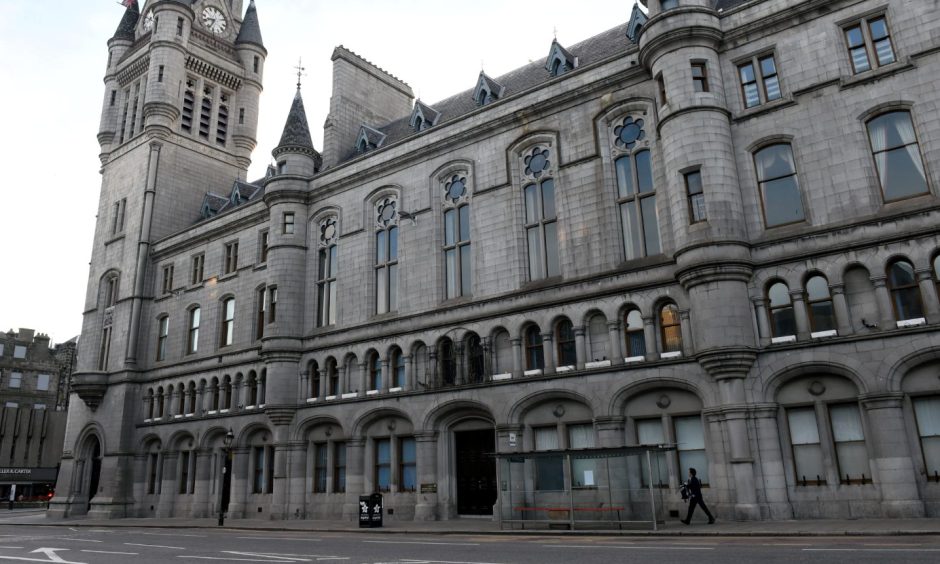A mum whose daughter took her own life at Aberdeen University after a campaign of domestic abuse says she feels “robbed” by systematic failings that meant she had to turn detective herself.
Emily Drouet, 18, was threatened and assaulted by fellow student Angus Milligan and she sadly died at Hillhead Halls in 2016.
Scotland has no formal process for investigating such incidents and Holyrood wants to introduce one.
It would potentially allow families and public authorities to order probes into deaths like Emily’s so changes can be made to avoid a repeat.
Advising MSPs on reform at a panel meeting in Holyrood this morning, Emily’s mum Fiona described how no organisation looked into the circumstances surrounding the tragedy – so she had to, and that needs to change.
Grieving mum had to turn detective
In the weeks after Emily’s death, Fiona essentially took up the role as an amateur detective because there was nobody else to do it for her.
She spoke with many of Emily’s friends, flatmates and coursemates to establish what had happened.
Fiona, a mum of three, obtained text messages to and from Emily’s phone – and, eventually, Milligan was prosecuted for threatening and assaulting Emily.
Milligan was spared jail and later kicked out of the university.
Fiona told the panel: “We feel quite robbed as a family that there was no statutory process.
“After we lost Emily, we had to do all of that work ourselves to uncover what failures had occurred.”
Fiona, who now runs a campaign group in Emily’s memory named the EmilyTest, said there were “many failures” at Aberdeen University – which, she said has since “completely transformed” its approach to student welfare.
“There were gaps in policies – and we as a family had to identify those. If there had been a review process, the university would have stood out as quite stark.
“It would have identified systemic failures.
‘We’ve faced this for nine years’
“(Introducing a review process) would be life-changing for so many people.
“We need to make sure that families are not left to uncover systemic change.
“When you’ve lost a child to suicide and then have to familiarise yourself with laws it becomes worse.
“For the last almost nine years, that’s something our family has faced.”
Fiona, of Glasgow, told the panel that, when domestic abuse has taken place, the families are best placed to help establish a sequence of events.
She said: “They’re the ones that have lived with that person who are seeing their life up until that moment.
“They are the main voice in this and should always be central to any review.
“It was an exceptionally frustrating experience for us to go through it and not be heard.”
Fiona went further – and said that some organisations viewed her family as “problematic” because they were looking into what happened and going to police with their findings.
“I know that’s a feeling shared by many families. If families were listened to, we would get justice a lot quicker,” she added.
Traumatic experiences in court
Fiona, who was awarded an MBE in 2020 for her campaign work on this issue, told the panel the new reviews must be properly financed.
There was also a need, she said, to ensure officials who oversee the process are properly trained, unbiased and reflect society.
She also said it was important review publications are redacted to respect family privacy and that reviews last no longer than necessary.
Holyrood is also considering holding more court hearings online.
Fiona said families should have the option of virtual hearings, citing two traumatic experiences she had at Aberdeen Sheriff Court.
The first was when court officials failed to ensure Angus Milligan did not enter the court building via a separate entrance.
The second was Milligan’s defence solicitor’s conduct outside court.
Fiona told the panel: “On one occasion (Milligan) would have been within touching distance of me and Emily’s grandfather (in the court building).
“That was exceptional traumatising and something that lasts with you for a lifetime.
“The system is not trauma-informed. Doing hearings remotely would be beneficial.”
‘He apologised in advance for offending me’
She added: “Just from experience of manipulation – I know defence lawyers have a job to do – last time we were in court about our daughter’s case, I actually had an apology made to me before I was cross-examined.
“That has stuck with me as the cross-examination was very unpleasant.
“It took me back years, in terms of recovering from this, if you can ever recover.”
Fiona also described how defence solicitors sometimes use “particular tactics” to get on the right side of sheriffs during physical hearings that wouldn’t be possible with remote hearings.
She said: “I found that upsetting and confusing and perhaps when the hearing is remote, there wouldn’t be an opportunity to do that.”
The Criminal Justice Committee panel’s work continues and the Scottish Government will announce any changes in due course.
We have approached the Scottish Court Service for comment.
Nick Edwards, deputy director of people at Aberdeen University said: “Since Emily’s tragic death in 2016, the university has worked hard to develop a strategy and approach to both addressing gender-based violence in our community and combating it in wider society.
“We, and many other institutions, are on a journey to do better and, since I met her in late 2019, I have been proud to work alongside Fiona and her team on the various initiatives she is leading in the sector through her charity EmilyTest.
“As recognition that we are making good progress on this mission, the university was delighted to achieve the EmilyTest Charter Award last year.
“The charter helps recognise the hard work being done by many people across the university – and special thanks go to Fiona for her steadfast support to me and the team in all the work we do together.
“While this achievement was something to celebrate, it only marks a point on our continual journey with regards to tackling gender-based violence at the university and by no means the end of it.
“We commit to continually learning in this area and enhancing our support for victim/survivors.
“We will never forget Emily or what happened to her and this fuels our ongoing and unwavering commitment to fight gender-based violence in all its forms.”
You can read more about Emily’s story, plus accounts from other victims and the efforts of support organisations, in our investigations series The Hidden Hurt.
You can read it here or by clicking on the image below.




